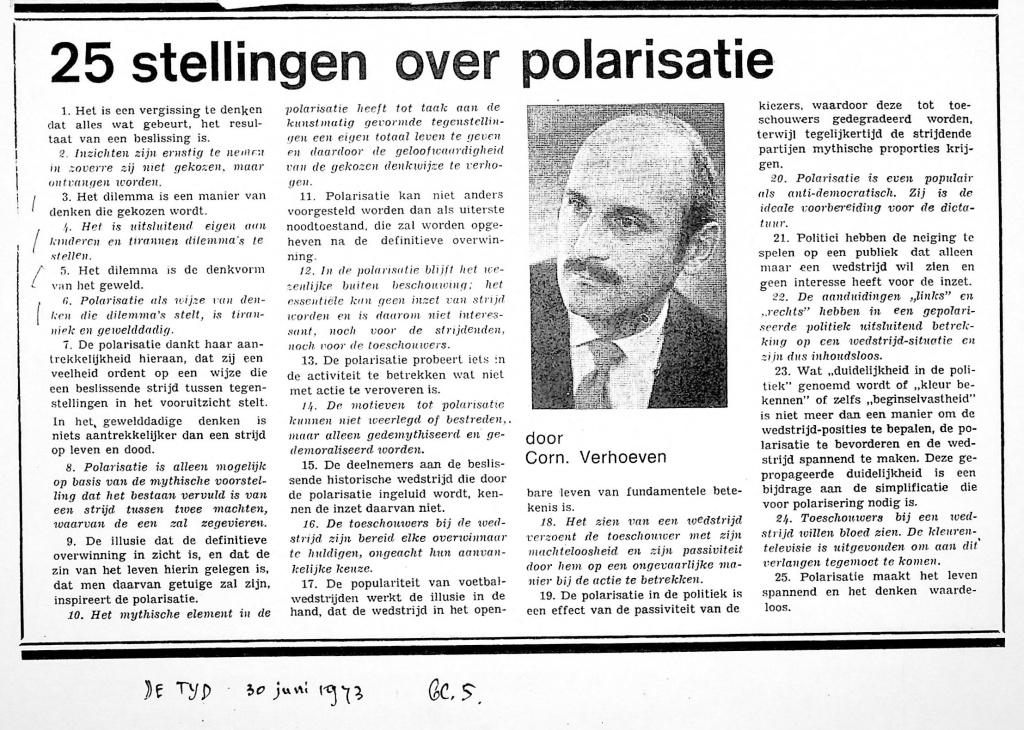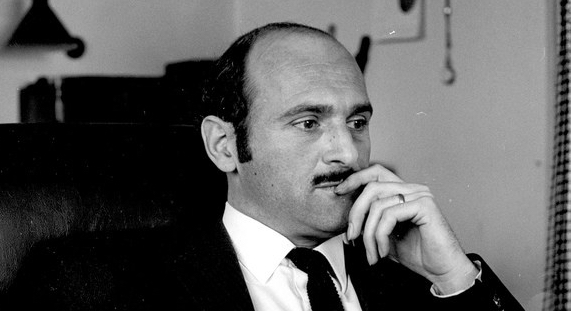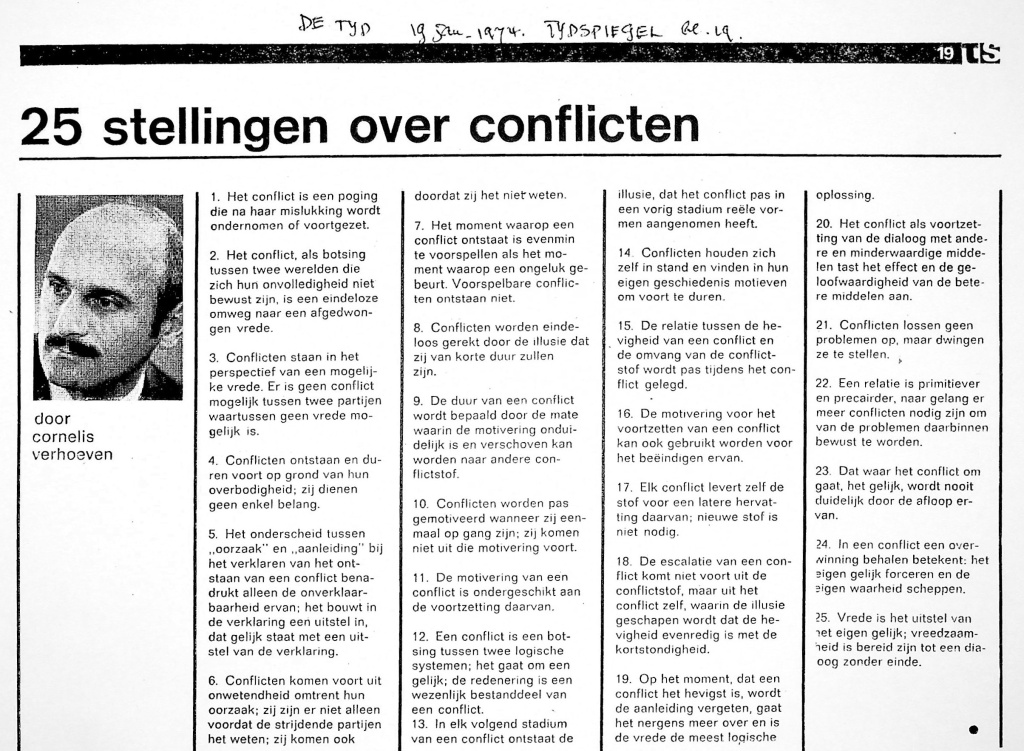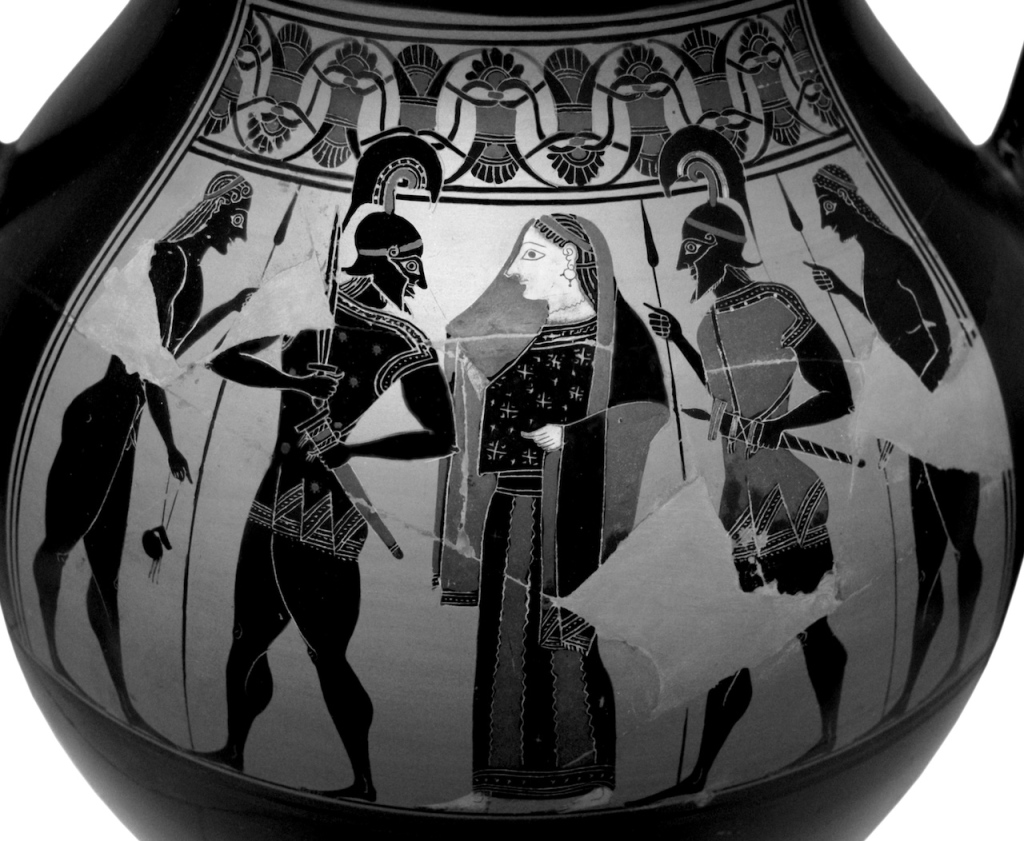1. It is a mistake to think that everything that happens is the result of a decision.
2. Insights are to be taken seriously insofar as they are not chosen, but received.
3. The dilemma is a way of thinking that is chosen.
4. It is unique to only children and tyrants to pose dilemmas.
5. The dilemma is the form of thought of violence.
6. Polarization as a mode of thinking that poses dilemmas is tyrannical and violent.
7. Polarization owes its attractiveness to the fact that it organizes a multitude in a way that promises a decisive battle between opposites. In violent thinking, nothing is more attractive than a struggle to the death.
8. Polarization is only possible based on the mythical idea that existence is filled with a battle between two powers, one of which will prevail.
9. The illusion that a final victory is in sight, and that the meaning of life lies in witnessing it, inspires polarization.
10. The task of the mythical element in polarization is to give the artificially formed contradictions completely their own life and thereby increase the credibility of the chosen way of thinking.
11. Polarization can only be presented as a state of extreme emergency, which will be lifted after a final victory.
12. In polarization, what’s really important is not taken into account; the essential cannot become a point of struggle and is therefore not interesting, neither for the combatants nor for the spectators.
13. Polarization tries to bring something into the activity that cannot be conquered with action.
14. The motives for polarization cannot be refuted or combated, but only demythified and demoralized.
15. The participants in the decisive historical competition ushered in by polarization do not know the stakes.
16. The spectators at the match are prepared to honor any victor, regardless of their initial choice.
17. The popularity of football matches promotes the illusion that the match is of fundamental importance in public life.
18. Watching a match reconciles the spectator with his powerlessness and passivity by involving him in the action in a harmless way.
19. Polarization in politics is an effect of the passivity of voters, which reduces them to spectators, while at the same time the opposing parties acquire mythical proportions.
20. Polarization is as popular as it is anti-democratic. It is the ideal preparation for the dictatorship.
21. Politicians tend to play to an audience that just wants to watch a game and has no interest in the stakes.
22. In polarized politics, the terms “left” and “right” refer exclusively to a competitive situation and are therefore meaningless.
23. What is called “clarity in politics” or “showing your colors” or even “consistency of principle” is nothing more than a way to determine competitive positions, promote polarization and make the contest exciting. This propagated clarity contributes to the simplification required for polarization.
24. Spectators at a match want to see blood. Color television was invented to meet this desire.
25. Polarization makes life exciting and thought worthless.







